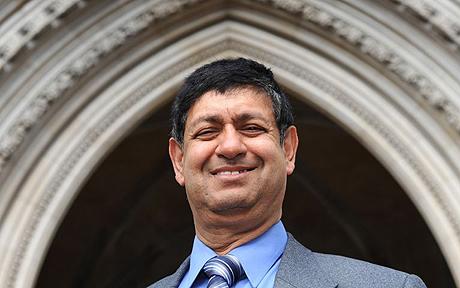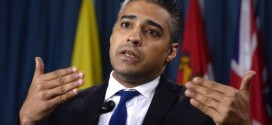
South Africa: “Open Mosque” for women and gay people opens
South African Muslim academic Taj Hargey has pledged to go ahead and start a woman-friendly and gay-friendly mosque in his country, despite receiving several death threats over the issue.
Taj Hargey is the director of the Muslim Educational Centre of Oxford, an organization of “forward thinking” Muslims; Hargey says that his Open Mosque will welcome people of all sexual orientations, religions and genders after it opens in the Cape Town suburb of Wynberg on Friday. Over 300 people are expected to attend the mosque’s first service. Hargey had caused uproar in the UK when he called on British Muslims to ban the Burka.
“You enter the mosque, do I ask you the question who did you sleep with last night? No. It’s not my business who you slept with. Women will enter the same doors as men, women will take part in the service. This is the first time you’ll see men and women praying together”, the 60-year-old said.
Hargey also said that the Open Mosque, which has been in development for over two years now, is designed to tackle the growing Islamic radicalism in the continent.
“South Africans have become Arabized, they think they must wear the burka, must have face masks, that men must wear pyjama dresses. They think that is the only version of Islam”, he said.
According to Hargey, the response to the Mosque has ranged from apoplectic to ecstatic.
“A 77-year-old grandmother just called me and said: ‘All my life I’ve been waiting for this, for the first time I can go to a mosque and be warmly welcome,’”, he said.
However, Hargey says that he has also received “a lot of death threats”.
Non-profit religious advocacy group Muslim Judicial Council, an umbrella group for Muslim clerics in South Africa, said that it was investigating the policies and objectives of the Open Mosque.
Riad Fataar, the group’s Deputy President, had last week praised the South African Muslim community for their “vigilance”.
“We see and feel the anxiousness in our community”, he said to a local radio station.
Fataar added that the Council wouldn’t currently consider the Mosque as a place of prayer.
“We see in the newspaper clippings and the messages that this is a place of worship but we can’t call it a mosque. But again we cannot make a complete statement until we have all the facts”, he said.
 The Arab Democrat The Latest From The Arab World
The Arab Democrat The Latest From The Arab World





